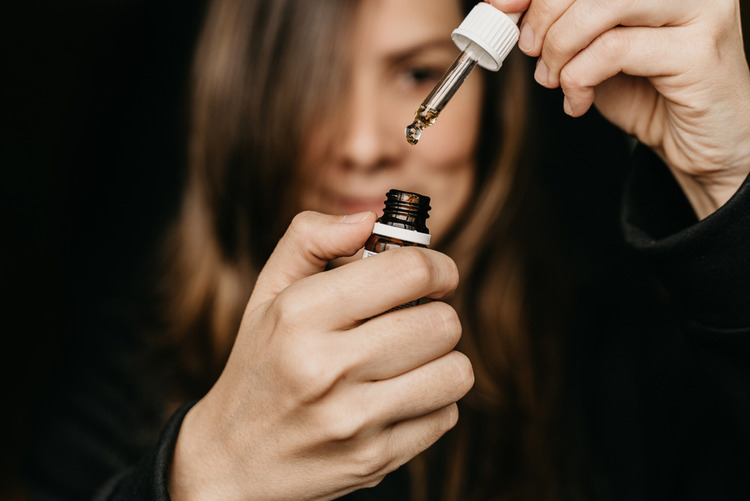Introduction:
Cannabigerol (CBG), one of the lesser-known cannabinoids found in the cannabis plant, has been gaining attention for its potential therapeutic effects, particularly in managing anxiety. As anxiety disorders continue to affect millions worldwide, the search for effective treatments remains ongoing. In this article, we’ll explore the scientific evidence behind CBG’s purported benefits for anxiety, delving into its mechanisms of action, potential advantages, and limitations.

Understanding CBG:
CBG, often referred to as the “mother cannabinoid,” serves as a precursor to other cannabinoids like THC and CBD. While it’s typically found in smaller concentrations compared to its more famous counterparts, CBG has sparked interest due to its unique pharmacological properties. Unlike THC, CBG is non-psychoactive, meaning it doesn’t induce a “high” commonly associated with cannabis consumption.
Mechanisms of Action:
Research suggests that CBG interacts with the endocannabinoid system (ECS), a complex network of receptors and neurotransmitters involved in regulating various physiological processes, including mood and stress responses. CBG is believed to modulate the ECS by influencing receptors such as CB1 and CB2, which are distributed throughout the central nervous system and peripheral tissues.
CBG’s Potential for Anxiety Management:
Several preclinical studies have explored CBG’s anxiolytic (anti-anxiety) effects in animal models. For example, a 2019 study published in the journal Neurotherapeutics found that CBG exhibited promising results in reducing anxiety-like behaviors in rodents. The researchers attributed these effects to CBG’s interactions with serotonin receptors, which play a crucial role in mood regulation.
Furthermore, CBG’s ability to inhibit the reuptake of gamma-aminobutyric acid (GABA), a neurotransmitter with calming properties, may contribute to its anxiolytic effects. By enhancing GABAergic signaling, CBG could potentially alleviate symptoms of anxiety and promote relaxation without causing sedation or impairment.
Pros of CBG for Anxiety:
- Non-Psychoactive: Unlike THC, CBG doesn’t produce intoxicating effects, making it suitable for individuals seeking relief from anxiety without experiencing cognitive impairment.
- Anxiolytic Properties: Preclinical studies suggest that CBG may effectively reduce anxiety-like behaviors in animal models, indicating its potential as a therapeutic agent for anxiety disorders.
- Minimal Side Effects: Early research indicates that CBG is well-tolerated, with few reported adverse effects. This could make it a safer alternative to conventional anxiolytic medications, which often carry risks of dependence and other adverse reactions.
Cons of CBG for Anxiety:
- Limited Human Studies: While preclinical research on CBG’s anxiolytic effects is promising, clinical trials involving human participants are scarce. More robust evidence from well-designed human studies is needed to validate CBG’s efficacy and safety for anxiety management.
- Regulatory Hurdles: The legal status of CBG and other cannabinoids varies across jurisdictions, posing challenges for researchers and consumers interested in exploring its therapeutic potential.
- Lack of Standardization: The quality and consistency of CBG products can vary significantly, making it challenging for consumers to determine the optimal dosage and formulation for anxiety relief.
Conclusion:
While preliminary research suggests that CBG holds promise as a novel therapeutic option for anxiety, further investigation is necessary to fully elucidate its efficacy, safety, and optimal dosing strategies. As interest in cannabinoids continues to grow, it’s essential to approach CBG and other cannabis-derived compounds with caution, recognizing both their potential benefits and limitations. By fostering continued scientific inquiry and regulatory oversight, we can better harness the therapeutic potential of CBG while ensuring the well-being of individuals seeking relief from anxiety disorders.
